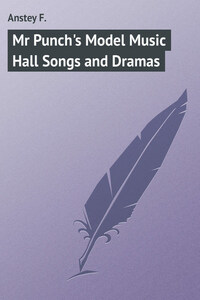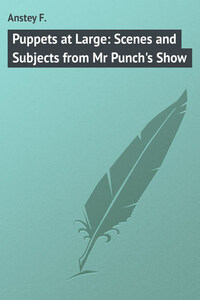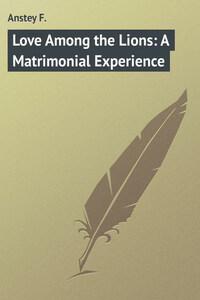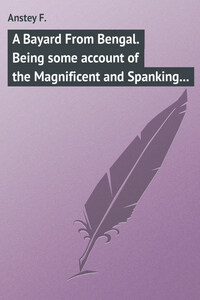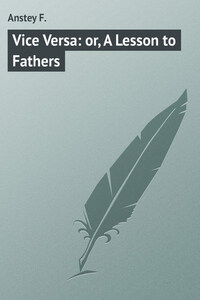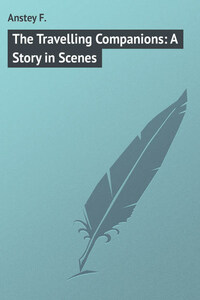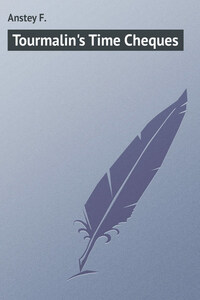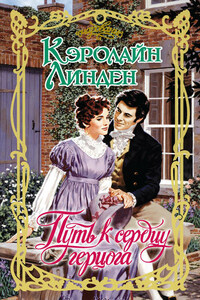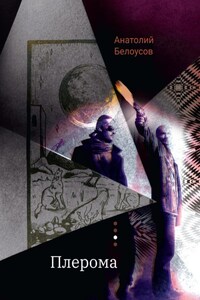The day is approaching, and may even now be within measurable distance, when the Music Halls of the Metropolis will find themselves under yet more stringent supervision than is already exercised by those active and intelligent guardians of middle-class morality, the London County Council. The moral microscope which detected latent indecency in the pursuit of a butterfly by a marionette is to be provided with larger powers, and a still more extended field. In other words, our far-sighted and vigilant County Councilmen, perceiving the futility of delaying the inspection of Variety Entertainments until such improprieties as are contained therein have been suffered to contaminate the public mind for a considerable period, are determined to nip these poison-flowers in the bud for the future; and, unless Mr. Punch is misinformed, will apply to Parliament at the earliest opportunity for clauses enabling them to require each item in every forthcoming performance to be previously submitted to a special committee for sanction and approval.
The conscientious rigour with which they will discharge this new and congenial duty may perhaps be better understood after perusing the little prophetic sketch which follows; for Mr. Punch's Poet, when not employed in metrical composition, is a Seer of some pretensions in a small way, and several of his predictions have already been shamelessly plagiarised by the unscrupulous hand of Destiny. It is not improbable that this latest effort of his will receive a similar compliment, although this would be more gratifying if Destiny ever condescended to acknowledge such obligations. However, here is the forecast for what it is worth, a sum of incalculable amount: —
POETIC LICENCES
A VISION OF THE NEAR FUTURE
Scene —A Committee-room of the L. C. C.; Sub-Committee of Censors, (appointed, under new regulations, to report on all songs intended to be sung on the Music-hall Stage,) discovered in session.
Mr. Wheedler (retained for the Ballad-writers). The next licence I have to apply for is for – well, (with some hesitation) – a composition which certainly borders on the – er – amorous – but I think, Sir, you will allow that it is treated in a purely pastoral and Arcadian spirit.
The Chairman (gravely). There are arcades, Mr. Wheedler, I may remind you, which are by no means pastoral. I cannot too often repeat that we are here to fulfil the mission entrusted to us by the Democracy, which will no longer tolerate in its entertainments anything that is either vulgar, silly, or offensive in the slightest degree. [Applause.
Mr. Wheedler. Quite so. With your permission, Sir, I will read you the Ballad. [Reads.
"MOLLY AND I
"Oh! the day shall be marked in red letter – "
The Chairman. One moment, Mr. Wheedler, (conferring with his colleagues). "Marked with red letter" – isn't that a little – eh? liable to – You don't think they'll have read Hawthorne's book? Very well, then. Go on, Mr. Wheedler, please.
Mr. W."'Twas warm, with a heaven so blue."
First Censor. Can't pass those two epithets – you must tone them down, Mr. Wheedler —much too suggestive!
Mr. W. That shall be done.
The Chairman. And it ought to be "sky."
Mr. W. "When amid the lush meadows I met her,
My Molly, so modest and true!"
Second Censor. I object to the word "lush" – a direct incitement to intemperance!
Mr. W. I'll strike it out. (Reads.)
"Around us the little kids rollicked,
Lighthearted were all the young lambs – "
Second Censor. Surely "kids" is rather a vulgar expression, Mr. Wheedler? Make it "children," and I've no objection.
Mr. W. I have made it so. (Reads.)
"They kicked up their legs as they frolicked" —
Third Censor. If that is intended to be done on the stage, I protest most strongly – a highly indecorous exhibition! [Murmurs of approval.
Mr. W. But they're only lambs!
Third Censor. Lambs, indeed! We are determined to put down all kicking in Music-hall songs, no matter who does it! Strike that line out.
Mr. W. (reading). "And frisked by the side of their dams."
First Censor (severely). No profanity, Mr. Wheedler, if you please!
Mr. W. Er – I'll read you the Refrain. (Reads, limply.)
"Molly and I. With nobody nigh.
Hearts all a-throb with a rapturous bliss,
Molly was shy. And (at first) so was I,
Till I summoned up courage to ask for a kiss!"
The Chairman. "Nobody nigh," Mr. Wheedler? I don't quite like that. The Music Hall ought to set a good example to young persons. "Molly and I —with her chaperon by," is better.
Second Censor. And that last line – "asking for a kiss" – does the song state that they were formally engaged, Mr. Wheedler?
Mr. W. I – I believe it omits to mention the fact. But (ingeniously) it does not appear that the request was complied with.
Second Censor. No matter – it should never have been made. Have the goodness to alter that into – well, something of this kind. "And I always addressed her politely as "Miss." Then we may pass it.
Mr. W. (reading the next verse).
"She wore but a simple sun-bonnet."
First Censor (shocked). Now really, Mr. Wheedler,
